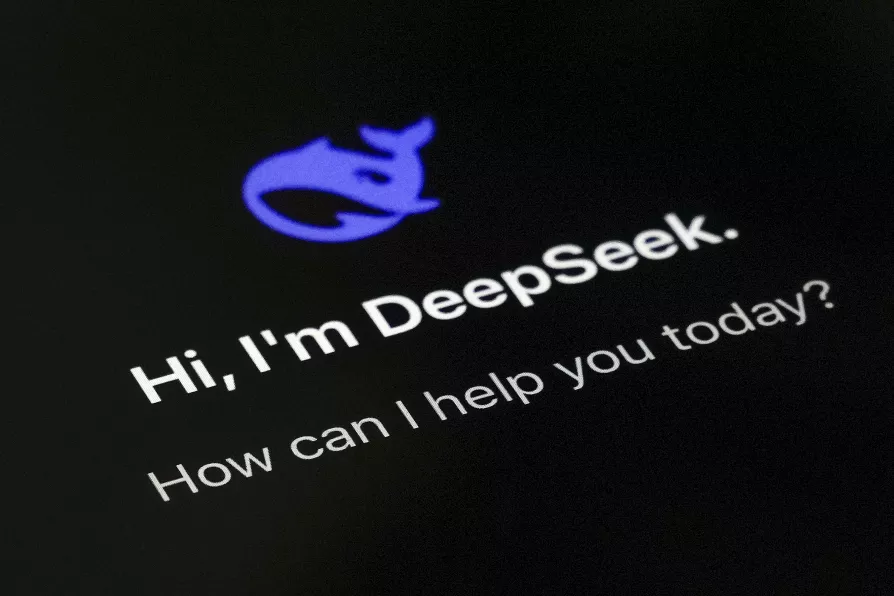
 The smartphone apps DeepSeek page is seen on a smartphone screen in Beijing, January 28, 2025
The smartphone apps DeepSeek page is seen on a smartphone screen in Beijing, January 28, 2025
HISTORY may have been made this week when, for the first time, a Chinese technological development had the effect of wiping at least a trillion dollars off corporate values on the US stock market.
Artificial intelligence firm DeepSeek caused the crash by showing that it can deliver the same results as US-originated AI monopolies at a fraction of the cost.
At least in part, this is a result of an own goal by the US government. In placing sanctions on microchip exports to China, it forced developers in that country to use their chips more efficiently.
That means it uses less memory to accomplish the same tasks as products developed by OpenAI, Meta, Google and other US businesses.
That is bad news for these monopolies as they seek investor backing to spend hundreds of billions of dollars on artificial intelligence development.
Chip-maker Nividia has been particularly badly hit in the stock market as the DeepSeek advance means that fewer of its products will be needed if the Chinese technology becomes the industry standard.
There is a wider lesson, however. The days are gone when Chinese economic advance largely relied on technical innovations developed elsewhere.
DeepSeek founder Liang Wenfeng explains: “For many years, Chinese companies are used to others doing technological innovation, while we focused on application monetisation — but this isn’t inevitable.
“In this wave, our starting point is not the opportunity to make a quick profit, but rather to reach the technical frontier and drive the development of the entire ecosystem … We believe that as the economy develops, China should gradually become a contributor instead of free-riding.”
This has been compared to the “Sputnik moment” in 1957 when the Soviet Union launched the first satellite to orbit the Earth.
However, the technical advances in Soviet science which made it a world leader in humanity’s advance into space never became pervasive in the wider economy, which continued to the end to lag the developed capitalist countries in most decisive measures of productivity.
Today, the challenge to US hegemony is more serious still. Artificial intelligence has the potential to make an even more profound impact on human life than space exploration did.
And the Chinese economy is powering ahead at a sustained rate of growth which has seen it all but draw level with the United States in gross domestic product, even if it still lags on a per capita basis.
It is likely that what one part of the Chinese economy achieves today will become the norm throughout its industry within a few years, given the capacity of the state to manage development on its own terms, combining market incentives with socialist planning and regulation.
It is therefore unsurprising that President Donald Trump has called the DeepSeek development a “wake-up call.” In its international policy, his administration is going to be defined by great power competition.
China is his number one target, since its growing economic and political influence in the world is the main challenge to the decaying US-dominated world order.
US firms will now of course respond by trying to embrace DeepSeek’s chip-efficient methods as their own. Despite all the talk of deregulation and market control, state-driven security concerns will drive Washington’s response, as they did over Sputnik.
Naturally, broader concerns over the control and development of AI, and the need to manage its impact on labour above all, remain whoever is leading its growth.
But there is no doubt that this week’s events are a landmark in the decline of US hegemony, and in the development of global multipolarity. With all its contradictions and contestations, that can only be welcome.














